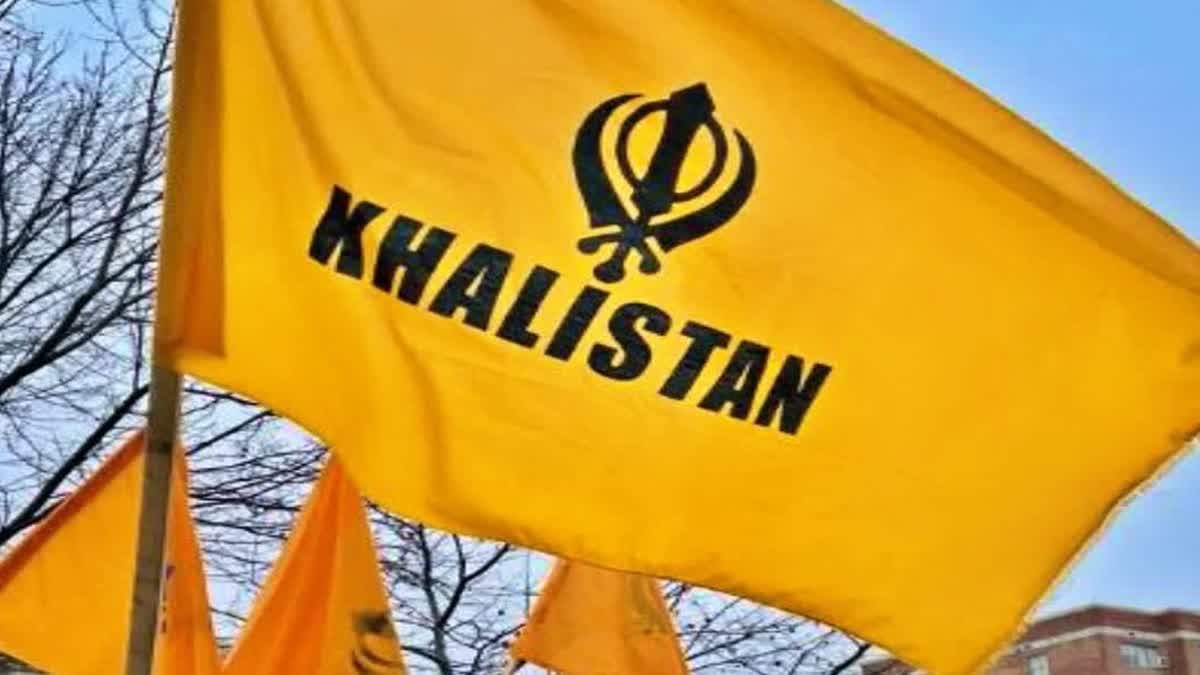New Delhi: The diplomatic stand off between Canada and India over the killing of pro-Khalistan leader Hardeep Singh Nijjar has further strained with the US on Wednesday urging the Indian government to cooperate in the Canadian investigation saying it is deeply concerned about the allegations by Prime Minister Justin Trudeau, who has blamed the Indian state for the Sikh leader's killing in June this year.
While the wild allegations have grabbed global headlines, the killing has caused tensions among the different Indian communities back in Canada. ETV Bharat's National Bureau Chief Rakesh Tripathi spoke to Indians living in Canada to know their take over the killing of the radical Sikh leader and the aftermath of Prime Minister Trudeau's allegations against India.
Fifty-five year old Canadian businessman Herman Gill has his own driving school. At the age of 21, he came to Canada to knock on the doors of destiny, today due to his hard work he is the owner of a flourishing business. Gill said, “Look, there is nothing like this in our society. Of course, some people are threatening Hindus on social media and making messages viral, but in reality there is complete brotherhood here. Wherever I go to play badminton, there are only one or two Sardars, the rest are 10 or 12 Hindus. No such thing ever happened there.”
However, deep seated tensions are palpable in Gill's voice is clear. “One should not betray one's own country. I came to Canada when I was 21 years old. Now I am turning 55. I have spent more time here than in India. But even today the same passion for our country remains intact. Many times I feel like settling in India,” he said.
Over a question about Khalistan, Gill said, “What will we do with Khalistan? My father was always against Bhindranwale. If Guru Sahiban had said so, we would have taken Khalistan. How great a fighter Hari Singh Nalwa was, how big was the rule of Maharaja Ranjit Singh, even then he did not take Khalistan. So all this is just a handful of people doing propaganda and ISI is also involved in this”.
Gill said that discourses on Khalistan usually happen more in those areas of Canada where the Sikh population is concentrated, such as Vancouver and Toronto. “They demonstrate in front of temples, write pro-Khalistan and anti-Hindu slogans on the walls of temples and also try to tease Hindus visiting temples. But they do not do any work that falls under the category of crime according to Canadian law. That's why they get away or come out of jail after facing minor punishment or fine,” he said.
Another NRI, Sumanth, working as an IT engineer said, “The native Canadians have a very negative image in their minds. There have been major efforts to improve this image by collecting donations for social causes, but for the last three years, the natives have been angry with the Sikhs, and there has been a lot of distance between them”.
Sumanth claimed that common white Canadians are “very angry with Trudeau and it is certain that Trudeau's time is over”. “His image is so bad that everyone here calls him 'Pappu' of Canada. Especially because of his visit to India in 2018, his image got badly tarnished here,” he said. Sumant said that “ever since the Indian government has started taking action against Khalistanis in Punjab, Khalistani supporters are a little scared”.
“Ever since the action has taken place in Punjab after the referendum, these people have retreated a little. Even Khalistani politicians have come on the backfoot. Recently, there is also a rumor that the Government of India may get the voter list of the referendum voting that took place and may take action against those people who came and voted in Punjab. Now they are scared. They are also engaged in destroying the voter list,” he added.
Srinivas Rao, who has been living in Canada for twenty-five years, said that the “atmosphere appears normal on the surface but it is not”.“People do not debate the issue of Khalistan in the open. If you meet us, you will say, no, there are some misguided people who do all this. But if any Sikh does not support, then as soon as you meet in the Gurudwara, people would complain about it,” he said.
Srinivas also attributes this to the “ghetto culture due to which, as soon as Sikhs come to Canada, they take up residence in areas where Sikhs are in majority”. “They do not interact with any white Canadian citizen here. Overall, whatever meeting takes place up to the Gurudwara, Punjab is at the center of it. However, only those living near the Indian Embassy would understand the issue of Khalistan. Not more than that. But there is no fear psychosis here. It is not that we should not go out due to fear,” he said.
(All names used in the story have been changed to protect the identity of the concerned persons)



